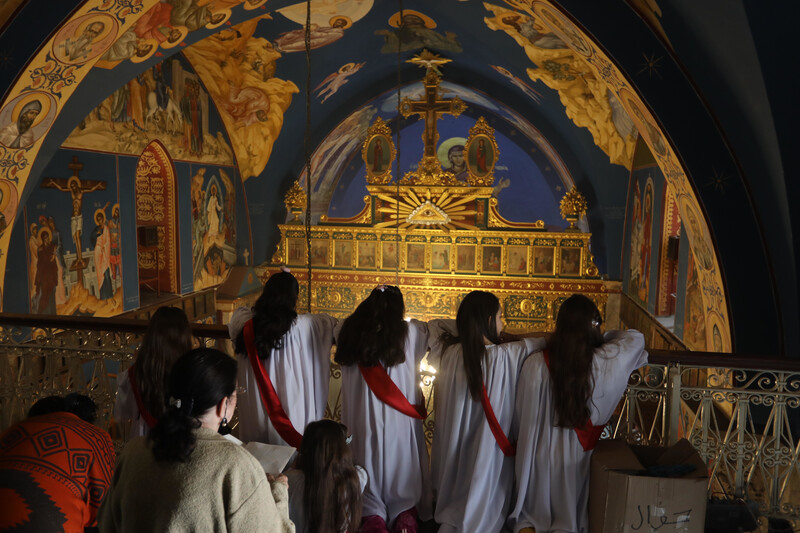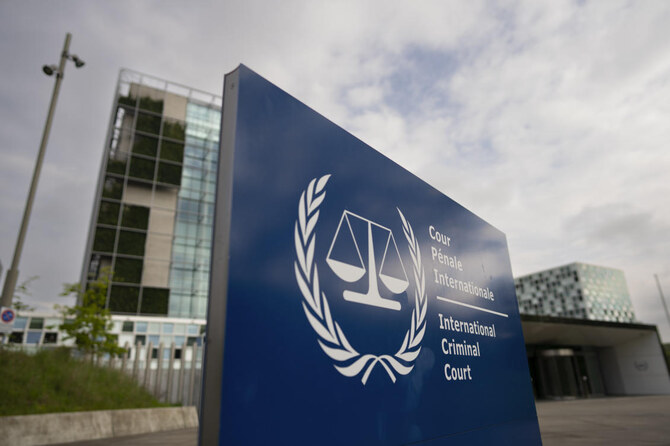Experts say the United States mounted immense pressure, deployed both cajolery and threats, but the judges refused to yield in light of damning evidence of war crimes in Gaza.
ZEYNEP CONKAR
TRT/AA

AFP
The ICC's arrest warrants for Israeli PM Benjamin Netanyahu and former defence minister Yoav Gallant are the first-ever arrest warrants issued against a serving leader of a state that is closely aligned with Western powers. / Photo: AFP
The International Criminal Court's (ICC) landmark issuance of arrest warrants against Israeli Prime Minister Benjamin Netanyahu and Defence Minister Yoav Gallant has finally set the wheels in motion, laying the groundwork for other Israeli military leaders and politicians responsible for the mass slaughter of Palestinians to be tried for their crimes.
It’s the first-ever arrest warrant issued against a serving leader of a state that is closely aligned with Western powers.
“The evidence of their guilt in war crimes and genocide has always been undeniable. But the evidence was so overwhelming that despite facing immense pressure and threats from the US, these judges made the decision to issue the arrest warrants anyway,” Ashish Prashar, ex-advisor to UK's Middle East peace envoy, tells TRT World.
The ICC warrants reflect the dismantling of the “Western-built wall of impunity” shielding Israel’s leadership, Prashar adds.
Nations bound by the Rome Statute or ICC Act can now prosecute individuals with universal jurisdiction—including political leaders and military personnel—domestically for aiding in genocide or crimes against humanity.
Universal Jurisdiction is a principle in international law that allows a state or international body to prosecute individuals for serious crimes – such as genocide, war crimes, and crimes against humanity – regardless of where the crime was committed, the nationality of the accused, or the victims.
“This opens up the door for other nations to act, not just against Israeli officials but also individuals and corporations complicit in these crimes,” Prashar says.
“It’s not just about Netanyahu and Gallant anymore. This could extend to soldiers, officials, and even corporate executives as well as companies who have supplied arms or resources that facilitated war crimes.”
The warrants create a pathway for lawsuits against corporations involved in supplying weapons or equipment in breach of international law, potentially exposing executives to serious legal risks for complicity in genocide or crimes against humanity, according to Prashar.
A fully isolated pariah state
The ICC court trial against Netanyahu and Gallant created a lot of buzz since the start of the proceedings on May 20, battering Israel's international reputation.
Several European countries, including Spain, Ireland, France, and the Netherlands, have indicated to honour the ICC’s decision, signalling a substantial shift in diplomatic dynamics.
For Netanyahu and Gallant, the repercussions are profound. All 124 signatory countries to the Rome Statute are now legally obligated to arrest and transfer them to the ICC if they enter their respective territories. These nations include some of Israel’s closest allies, such as the UK, Canada, Australia, Germany, France, Italy and the Netherlands.
While neither Israel nor the US are members of the ICC, the court’s jurisdiction extends to crimes committed on the territory of member states or by nationals of member countries.
Palestine acceded to the Rome Statute in 2015 and in 2021 it was recognised as a state by the ICC, extending the ICC’s jurisdiction to the territories occupied by Israel since 1967, including Gaza, the West Bank, and East Jerusalem.
Other European nations off-limits for Israeli leaders include Switzerland, Denmark, Italy, Finland, Croatia, Hungary, Portugal, and Poland, among others.
A new era of accountability
The US, which claims to be the champion of “defending the international rules based order”, rejected the ICC’s landmark decision, dismissing it as a “rushed and troubling” process.
,,
The US isn’t just protecting Israel by rebuffing the ICC rule, but it’s trying to protect itself because it’s equally complicit in crimes against Palestinians.
Prashar asserts that the US isn’t just protecting Israel by rebuffing the ICC rule, but it’s trying to protect itself because it’s equally complicit in crimes against Palestinians.
“By supplying the weapons and providing political cover for these atrocities, Washington has deeply implicated itself in these crimes. America’s hands are stained with blood—not only for enabling Israel’s actions but for blocking ceasefires that nearly every other nation has demanded,” Prashar says.
According to Article 3 of the 1948 Genocide Convention, the ongoing financial and military support provided by the US to Israel makes it complicit in genocide, thereby exposing it to potential lawsuits at the ICJ.
“So when the US is condemning all this and saying it's outrageous, you have to remember they're protecting themselves as much as they're protecting Israel,” says Prashar.
The ICC’s warrants have also driven a wedge between the US and some of its European allies. With several European nations showing signs to honour the court’s decisions, the ground for virtue signalling by the US and Israel is shrinking.
“From my perspective, one thing is definitely certain. The world just got a lot smaller for Israeli war criminals,” Prashar says.

Zeynep Conkar
Zeynep Conkar is a deputy producer at TRT World.
@zeyneepconkar











